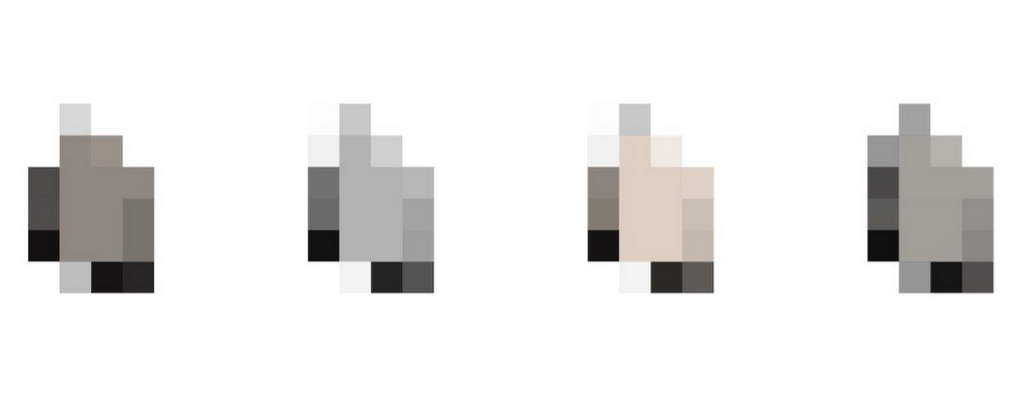These days, an EtherRock NFT sells for well over a million dollars. One of the reasons why the useless rock JPEGs command such princely sums is because the four-year-old collection is limited to a hundred, and it’s impossible to mint any more.
If you’ve missed out, fear not: a few weeks ago, a developer resurrected an even older version of the 2017 Pet Rock-inspired NFT project, abandoned by EtherRock’s developer because a bug lets anyone mint an unlimited number of NFTs—and all they have to pay is Ethereum’s gas fee.
The second ether rocks contract refers to OG ether rocks as the original.
Code is law mf’ers@weliketherocks @ManuAlzuru pic.twitter.com/5NSThGVO2u— Meir Bank (
,
) (@MeirBank) August 25, 2021
Now called We Like The Rocks, the once-abandoned project has attracted big-ticket NFT investors, who are already snapping up these free rocks for huge amounts.
Serial entrepreneur Gary Vaynerchuk spent 60 ETH ($194,000) on three rocks last night, and YouTube personality Logan Paul said he “literally left dinner” to snag two rocks for $60,000 and $95,000.
I literally left dinner last night to snag these.
$60k and $95k. The first rock NFT on Ethereum @weliketherocks; actually came before the Ether rock. I know it’s ridiculous but it’s digital history and I think they’re pretty cool
pic.twitter.com/0kfELpbyVe
— Logan Paul (@LoganPaul) August 27, 2021
How to mint a rock
Wade through the bugs and you can mint one yourself. On the read contract page, enter a number under “2. rocks” to check whether your desired rock has been claimed. If it’s not associated with a wallet, it’s available.
To mint the NFT, link an in-browser wallet, such as MetaMask, through the “connect to web 3” button under “write contract.”
Then, under the “4. buy rock” function, enter 0 for the amount and the number of the unclaimed rock you’d like to buy. Send the transaction through MetaMask and pay the gas fee.
The contract contains a bug that will immediately list your newly-minted rock for sale for free. To remedy this, hit “7. sell rock” immediately after your transaction has been confirmed, and enter your rock number and list it for sale.
You can sell it through the contract, or, if you want to HODL, enter an impossibly high price, such as 100000000000000000000000000000000000000.
This price is quoted in wei, the smallest denomination of ETH. You’ll have to pay gas once again to list your rock for sale.
Although both projects allude to rocks, NFTs from neither project have on-chain records of rock images. EtherRock.com uses JPEGs based on a royalty-free clip art from 1995; WeLikeTheRocks.com uses a pixelated version of that image.
You can’t do anything with the rocks, and only rocks 0-99 are listed on WeLikeTheRocks.com, the primitive marketplace created by James William, the pseudonymous blockchain sleuth who resurrected the abandoned contract on August 5.
Recap on sales today:
Rock #67 for 69 ETH
Rock #99 for 33 ETH
Rock #50 for 50 ETH
Rock #71 for 49 ETH
Rock #23 for 40 ETH
Rock #72 for 42 ETH
Rock #98 for 42.69 ETH
Rock #67 for 48 ETH
Rock #40 for 100 ETH
Rock #95 for 65 ETH
Rock #70 for 70 ETH
Rock #75 for 75 ETHWagmi
https://t.co/z064UBi1kY
— R0฿ST3R (@r0bster97) August 28, 2021
A fledgling community of developers is busy bringing the contract up to modern standards and hopes to list it on NFT marketplace OpenSea.
The Rock Wars
All of this has riled the anonymous developer of EtherRock. He told Decrypt that William, who minted 80 rocks, is a “bad actor” who “tried to shill it everywhere to make a quick buck.” The EtherRock site calls William a “cockroach.” William declined to comment to Decrypt but his supporters said he gave away most of his rocks to early adopters.
The EtherRock developer made about $1 million through the initial sale of his rocks, which his website describes as serving “NO PURPOSE beyond being able to be brought [sic] and sold.” One EtherRock sold for $1.7 million yesterday.
EtherRock 38 purchased for Ξ555 Ether
($1,730,961.75)21 mins ago (Aug-26-2021 08:14:19 PM +UTC)
Txn: https://t.co/f89o4Rz3k7#EtherRock #EtherRocks pic.twitter.com/1xa8qwXLTg
— EtherRock Price (@etherrockprice) August 26, 2021
The angry developer had We Like The Rocks’ OpenSea listing—called EtherRock Originals at the time—taken down a few days after it was listed on August 8. “It’s a shame people were taken in by it,” he said.
Not everyone shares the EtherRock developer’s criticisms.
“It’s beautiful that a bug from 2017 now creates the possibility to create the biggest and most minted NFT project ever,” Marcus Frogelius, who owns the 21st rock from the old contract, told Decrypt.
The project commands scarcity by numbering rocks but allows anyone to mint rocks, he said. “It’s exactly the unique formula a massive NFT community has been missing.”
Uxt, who owns rock #24, told Decrypt that the first 100 rocks are valuable due to their low number. “Past that, I suspect, people will prefer special numbers, repeating numbers, area codes, and so on. It’ll be fun to watch what people decide is valuable.”
Tommygunnnn, who owns rock #0 and several others in the abandoned contract, said it’s as though “Leonardo [Da Vinci] threw his first painting in the trash and someone found it.”
The EtherRock developer, who knows the absurdity of the NFT market all too well, said it’s possible that rocks from his abandoned contract could take off. “I don’t know. It’s a wild and ridiculous market.”
Disclosure: The writer and editor minted free rocks while researching this piece.





















